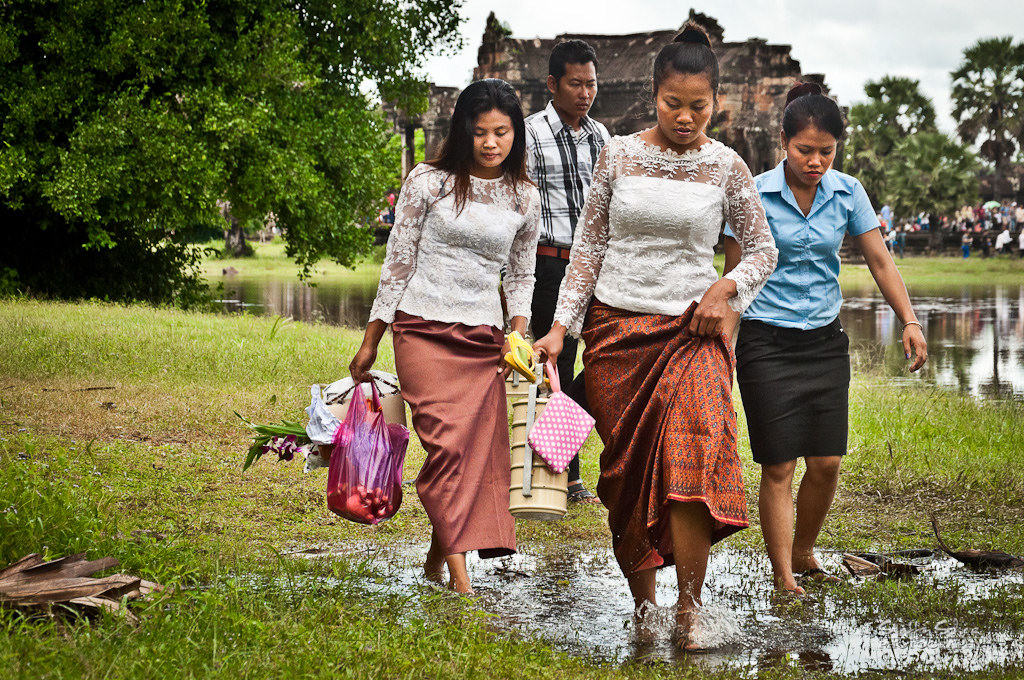89 percent of Cambodian face challenging to manage personal finances: UN study
Sokkheng, who runs a village store in Cambodia with her husband, lacked confidence when it comes to choosing the best approach to reinvest in her business, potentially making her vulnerable to economic and financial risks.

- Country:
- Cambodia
Many women running small businesses in emerging markets in developing countries have to juggle their business objectives with family obligations and personal savings goals. By supporting a women-focused bond providing loans to microfinance institutions and impact enterprises, the UN is helping women entrepreneurs facing similar challenges, to succeed in their professional and private lives.
Sokkheng, who runs a village store in Cambodia with her husband, lacked confidence when it comes to choosing the best approach to reinvest in her business, potentially making her vulnerable to economic and financial risks.
Today, her prospects have markedly improved, thanks to the support of a microfinance institution with a history of promoting the well-being of rural society, backed by a loan from the world’s first financial product focused on women to be listed on a stock exchange; the product is called the Women’s Livelihood Bond Series (WLB Series) and has been launched by Impact Investment Exchange (IIX).
Microfinance, major impact
The microfinance company approved a microloan for Sokkheng’s store and, crucially, provided expert financial advice. According to a UN-backed study, around 89 percent of Cambodian adults find it challenging to manage their personal finances.
Financial education is an important way to ensure that more people can establish savings priorities, spend in a smarter way and, crucially for women entrepreneurs such as Sokkheng, feel more fully informed when they take out loans or look for other forms of financial support.
Armed with the information she received, Sokkheng now has better cash management knowledge, helping her to improve the profitability of her business. She also signed up for microinsurance, which now provides her with additional economic security in times of emergencies.
Forging stronger bonds
The microfinance institution that helped Sokkheng has been able to scale up its operations and help more women borrowers, thanks to IIX’s WLB1, the first in a series of gender bonds, listed on the Singapore Exchange. IIX’s WLB Series is designed to create sustainable livelihoods for some two million women in Cambodia, Philippines, Sri Lanka, Indonesia, and India.
Following the success of the first bond, the UN Economic and Social Commission for Asia and the Pacific (ESCAP) and the UN Capital Development Fund (UNCDF), have partnered to provide support for the second bond in the series.
This support came in the form of a grant to help IIX to undertake impact monitoring and to help scale up the WLB Series.
The second WLB (WLB2), a $12 million bond, focuses on supporting 250,000 women in the region: capital is lent to several microfinance institutions and impact enterprises (companies which look to make a positive impact to society, alongside making a profit), chosen because they improve women’s access to finance, essential goods, assets that generate income, and vocational training.
Commenting on the launch of the second bond, Armida Salsiah Alisjahbana, Under-Secretary-General and Executive Secretary of ESCAP, said: “We are proud to announce our partnership with IIX’s Women’s Livelihood Bond Series, which embodies the bold innovations that are needed to advance progress for the world’s poorest communities.”
Judith Karl, Executive Secretary of UNCDF, said, “We are excited to work with IIX, ESCAP, the Rockefeller Foundation, and other key partners to demonstrate that viable investment vehicles can be created to attract finance from the international capital markets to the countries and people that need it most.”
Life for Sokkheng and her family has been transformed by IIX and microfinance: her business has expanded, and her household income has grown. She can now set aside savings every month and look forward to a comfortable, and secure retirement.
ALSO READ
US Treasury Secretary Yellen meets foreign business leaders in China ahead of trade talks
US Treasury chief Yellen kicks off visit to China, attends business leaders roundtable
Supreme Court stays Allahabad HC order that declared UP Board of Madarsa Education Act 'unconstitutional'.
SC notice to Centre, UP govt on plea challenging Allahabad HC order that declared UP Board of Madarsa Education Act 'unconstitutional'.
SC imposes interim stay on Allahabad HC order on UP Board of Madarsa Education Act










